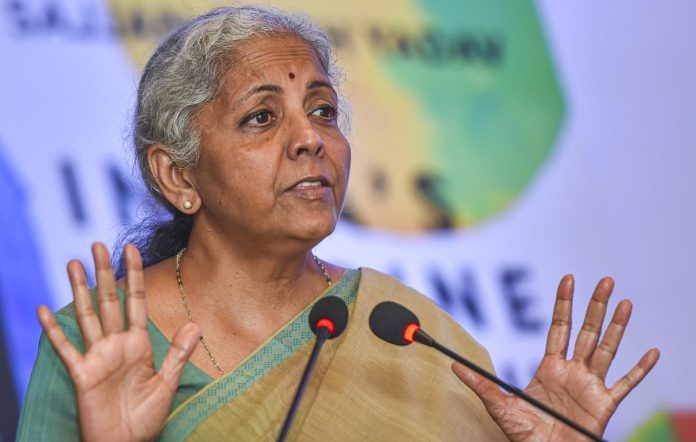NEW DELHI, July 27 : Even as most chief ministers of the opposition-ruled states skipped the 9th Governing Council meeting of the Niti Aayog on Saturday in New Delhi, Finance Minister Nirmala Sitharaman said that the Centre and states work together well despite political differences cropping up on some issues.
West Bengal Chief Minister Mamata Banerjee, who is also a key leader of the opposition INDIA bloc, attended the Niti Aayog meet chaired by Prime Minister Narendra Modi but walked out of it claiming she was not given enough time to speak.
“Aside from all filibustering, there will be states and Centre working together on most things,” Sitharaman said at an event organised by the India Today group.
The Finance Minister cited the example of a dispute between the Centre and the state of West Bengal over payment issues related to the rural employment guarantee scheme MNREGA and said that such frictions could be there at times.
“…So, in these sorts of situations, there will be friction because, knowing that there has been something wrong, the Centre won’t want to give money and then also seek information on everything else. These sorts of on-and-off things will probably happen. But otherwise, I have found that working together with states, particularly the officials who come and work on the actual nitty-gritties of things, things do go very well. I don’t think there is any major problem with most states,” the Finance Minister said.
On the issue of states demanding a higher share of tax devolution, the minister said that it was not something in her control as the formula for this was fixed by the Finance Commission.
“Increasing or decreasing the devolution is not my business. What the Finance Commission tells me to do. I do it and that has to be done for five years,” Sitharaman said.
Meanwhile, during the Niti Aayog Governing Council meeting, PM Modi observed on Saturday that the vision of Viksit Bharat can be realized through Viksit States, and that the aspiration of Viksit Bharat should reach the grassroot level, i.e. to each district, block, and village. He urged states to provide an investor-friendly environment and also encouraged them to increase productivity and diversification in agriculture.(UNI)


